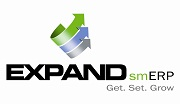Do you think you could easily lose track of how many systems you use to run your business, day to day? Perhaps you have a system for HR, a couple for sales, one for managing production, and a few more for marketing. Sounds familiar?
Often, each software is added as and when the need arises, as your business needs change and as your company grows. It’s easily done, and easily overlooked as a big problem. It would be ideal if these systems speak to each other, and you’re able to manage them from one source. However 9 times out of 10, this isn’t the case and you’re likely left with disintegrated programmes that require manual data entry or various import functions.
Challenges faced by entrepreneurs with multiple softwares :
Productivity – it is hard to find complete information quickly when you need it if you are looking across various systems. Running multiple systems at once can slow down the computer bandwidth, making certain tasks time-consuming and frustrating.Multiple software solutions can have different user interfaces which could result in more resources for training, especially for new hires learning every different system.
Lack of accuracy – information that is shared across fragmented systems, several departments, and updated by different people creates communication blocks, especially if not everybody has access to each individual system. Various systems can contain different variations of the same data, but no one is sure which is correct.
Outdated systems – some systems are outdated, resulting in high maintenance costs, no available support and some that aren’t capable of functioning like the modern contemporaries. The latest versions will undoubtedly address current flaws and increase functionality.
Different upgrade or renewal schedules – just like renewing your broadband or phone contracts, it’s very rare that all contracts renew on the same day. Often enough, your software is on different upgrade cycles, meaning a lot of time is spent either renewing or shopping around for another to try and fit in with your other current systems.
Extra Cost – Running multiple software systems comes at a higher cost. The implementation, integration and stock of numerous applications can rapidly take up an already limited budget making it difficult for ends to meet.
Unorganised data – with multiple softwares data is fed in a scattered manner in different formats which creates extra hassle to consolidate and utilise them.This results in inconsistency and creating reports becomes cumbersome.
High maintenance – maintaining multiple softwares and connecting with different vendors is a challenging task. It becomes worse when two different softwares are integrated.
Why is integrated software Important?
Enterprise resource planning software is used to manage a number of business functions, but how is it any better than other solutions? Even though ERP may have similar goals to other solutions, its unique features make it a distinctive competitor in the software market. It reduces daily operational expenses, improves collaboration, clears analytics, improves productivity, satisfies customers, simplifies compliance and risk management, improves inventory management, improves production planning and resource management
It is inevitable that using a single ERP software for managing your enterprise instead of multiple softwares managing different departments creates chaos and errors. It is advisable to change along with time to reap the potential of new technology.
To know more details contact us at +91 9007026542.

